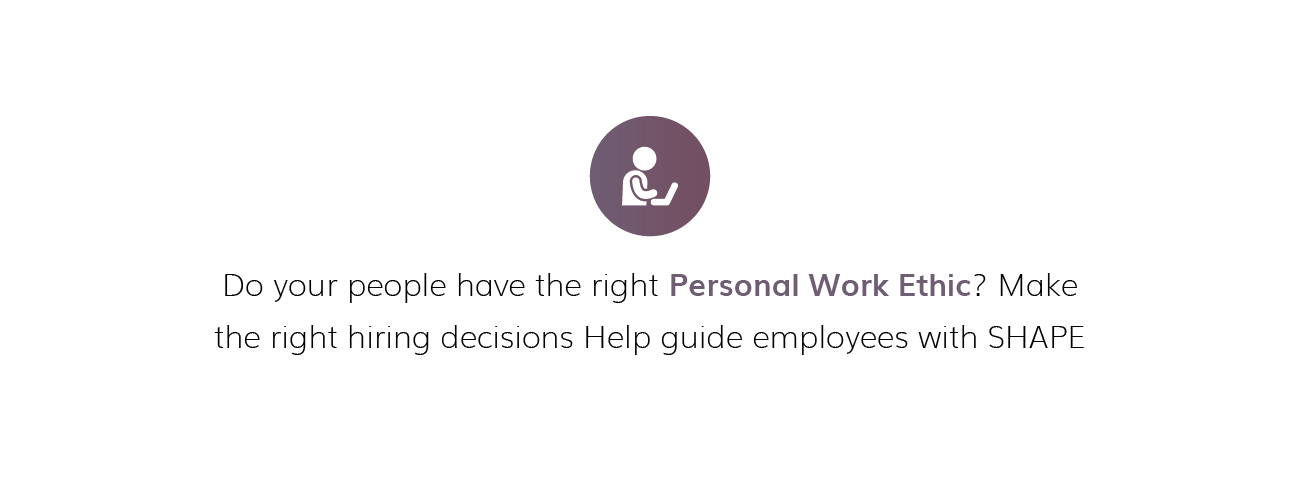Right hiring or right support: what does your company need?
The work environment can be conducive or corrosive to Personal Work Ethic
How’s your work ethic?
Whereas issues such as employee engagement, commitment, and satisfaction are responsive to positive/negative workplace factors that influence them, Personal Work Ethic (PWE) is more of a fixed personality trait that is somewhat less amenable to intervention.
Employees endowed with a strong PWE tend to turn up and do their best because that is what they are paid to do – for them, it is very simple – their employer buys their time, and failing to put in a solid effort is, to them, unethical. It goes against a fundamental aspect of their nature.
An employee’s PWE encompasses a set of moral principles that underpins their actions at work. It comprises traits such as reliability, dedication, productivity, cooperation, character, integrity, sense of responsibility, emphasis on quality, discipline, teamwork, professionalism, respect and determination, to name a few. Clearly, these are good employees to have.
What goes into good work ethic?
PWE can be thought of as the foundation on which a company can build three other important aspects of employee performance – Employee Commitment (EC) to the company, Employee Engagement (EE) with the team/team manager and Job Satisfaction (JS) in relation to the role undertaken.

Unlike employee engagement, employee commitment and job satisfaction which can be cultivated through positive factors in the work environment, PWE is what the employee brings to the role – a predisposition (or not) for reliability, dedication etc.
One way of looking at PWE is that it represents the raw materials available at the beginning of a process. Start with good grapes and you can produce good wine, but not if you are a poor vigneron. Start with quality wood and you can produce great furniture, but not if you are a novice cabinet maker.
This is why recruiters focus a lot on PWE in interviews and the recruitment process. They want to start with the best raw materials. What happens post-recruitment is up to the company – does the company culture engender commitment from employees? Does management style engage employees? Is the role satisfying?
Prioritising work ethic before and after hiring
Recruit an employee with good PWE, provide the right working conditions and reap the rewards.
Although we think of PWE as fixed, in reality, a toxic work environment will, over time, batter the most committed employees. These people may have begun their employment with a very high PWE, only to see it eroded over time in a work environment that fails to deliver on basic elements which support employee commitment and engagement.
As we move on through from the “job for life” expectation of the pre-Baby Boomers into the "15 jobs in lifetime” expectation of Millennials¹, we do suffer some erosion of PWE which is not unexpected. Companies aren’t offering “jobs for life” and more, so employees have backed away from their “commitment for life” ethos which is common in those with a high PWE.
This all helps to explain why, over time, organisations are having to work harder to recruit and retain the best talent. They have to actively develop and maintain the working conditions that support the top 3 tiers of our pyramid.
Because SHAPE measures and tracks PWE, it provides special insights into the psyche of employees. Because PWE should be fairly static, any decline is likely to be due to toxic factors in the workplace, and fortunately, SHAPE can also identify these.
¹Meister, Jeanne. 2012. Forbes.
